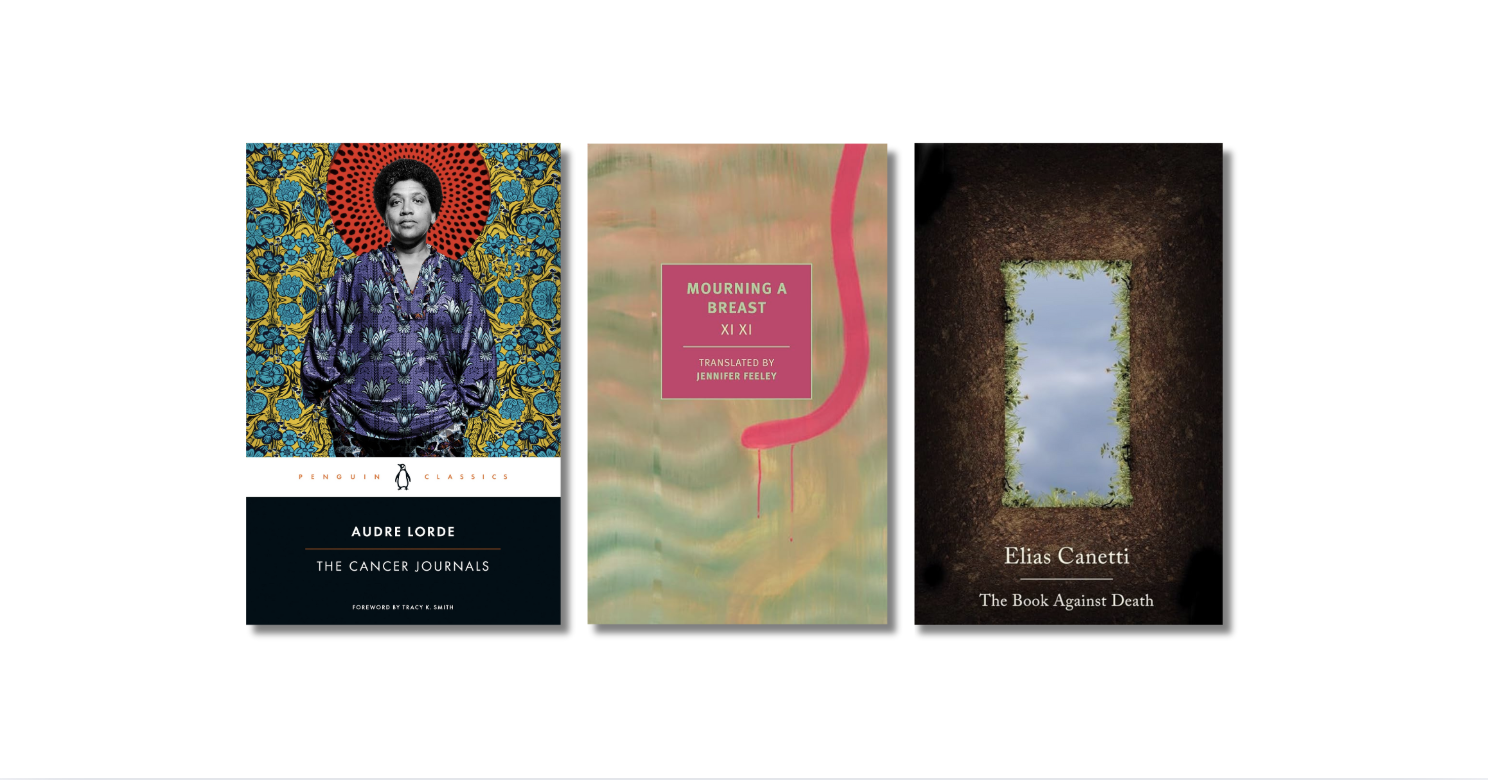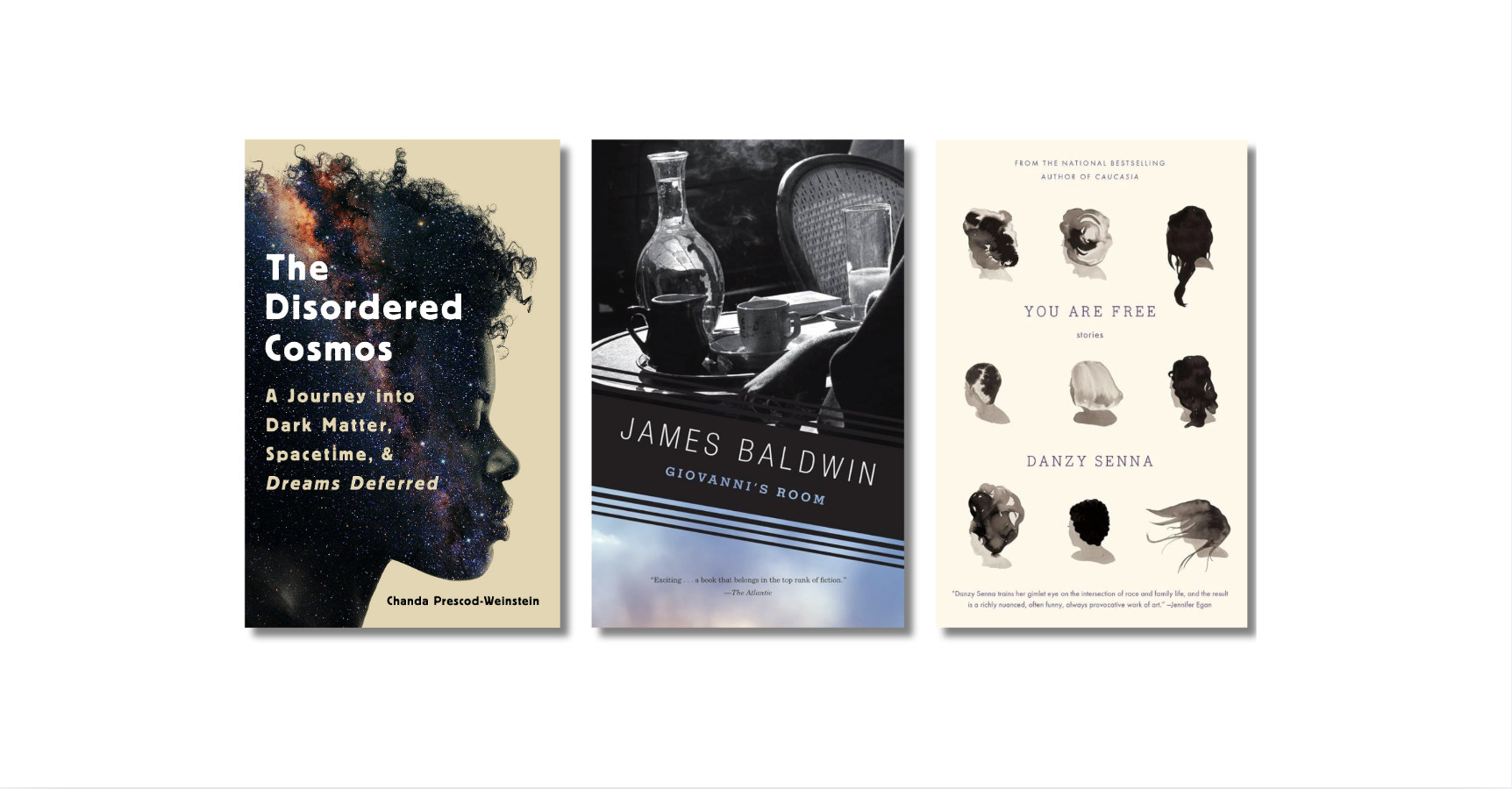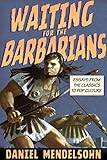
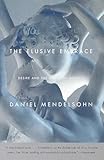 Daniel Mendelsohn’s Manhattan apartment is quiet, classy, tasteful. It is a symphony of stillness and neutrals in stark contrast to the constant motion, precise convictions, and easy chatter of the man who inhabits it. He apologizes for having nothing to offer but ice water, but is generous and forthright in his conversation. Mendelsohn is the author of two memoirs, The Elusive Embrace and The Lost, as well as a translation of the poems of C.P. Cavafy, a scholarly book about Greek tragedy, and two collections of critical essays, How Beautiful It Is And How Easily It Can Be Broken and the just published Waiting for the Barbarians. Previously the book critic for New York magazine, he is now a regular contributor to the New Yorker and the New York Review of Books. He has a Ph.D. in Classics and is a professor at Bard College, and there is the air of the scholar about him. Yet his lean freelancing-and-grad school, ramen-eating days remain a favorite topic, as do current movies and TV shows.
Daniel Mendelsohn’s Manhattan apartment is quiet, classy, tasteful. It is a symphony of stillness and neutrals in stark contrast to the constant motion, precise convictions, and easy chatter of the man who inhabits it. He apologizes for having nothing to offer but ice water, but is generous and forthright in his conversation. Mendelsohn is the author of two memoirs, The Elusive Embrace and The Lost, as well as a translation of the poems of C.P. Cavafy, a scholarly book about Greek tragedy, and two collections of critical essays, How Beautiful It Is And How Easily It Can Be Broken and the just published Waiting for the Barbarians. Previously the book critic for New York magazine, he is now a regular contributor to the New Yorker and the New York Review of Books. He has a Ph.D. in Classics and is a professor at Bard College, and there is the air of the scholar about him. Yet his lean freelancing-and-grad school, ramen-eating days remain a favorite topic, as do current movies and TV shows.
I‘ve come to talk to Mendelsohn about that vexed and suddenly trendy topic, the current state of criticism. A piece he published on the New Yorker blog Page-Turner, “A Critic’s Manifesto”, in late August described his love for the New Yorker critics of the 70s and his views on criticism, so it seemed like a good starting point for our discussion, which covered that piece, both of his essay collections, Mad Men, Grandma’s noodle kugel, John Cheever, cultural mushiness, and Battlestar Galactica.
The Millions: I read “A Critic’s Manifesto” and thought, “Oh no! You wrote about all of the things I was going to ask you. There goes my thunder.” But I thought we could spend some time talking about the piece and what prompted you to write it.
Daniel Mendelsohn: Well, there was this flamboyant review of Dale Peck’s novel which I think people had mixed feelings for because Dale Peck has specialized in that theatrical kind of criticism. I don’t think many people were shedding a tear for him. Then there was the Alex Ohlin piece [both negative reviews in the New York Times Book Review]. Then there was this great outpouring in the literary community. The New Yorker emailed me and said do you want to weigh in on this? And I did. I thought the way the discussion was trending, should negative reviews be published, seemed so egregious. It’s like saying should I use half of my brain? But I wasn’t planning on writing 4,000 words. I just wrote it in one white hot sitting.
This is very important to me. I do a lot of different kinds of writing, and I’ll be doing an interview about one of my books and they will be talking about my criticism as a day job. And I laugh, because this is not a day job. This is what a lot of my mind inhabits. I thought there was something that wasn’t being said about what critics are or can be or what criticism is or isn’t and how it functions.
TM: There is a formula for criticism in the piece which says that knowledge + taste = meaningful judgment, with an emphasis on meaningful. What makes a critique meaningful? As you point out, a lot of people have opinions who are not really critics and there are lots of people who are experts on subjects who don’t write good criticism. If everyone is not really a critic, where is the magic?
DM: It’s a very interesting question. It is magic, it’s a kind of alchemy. We all have opinions, and many people have intelligent opinions. But that’s not the same. Nor is it the case that great experts are good critics. I come out of an academic background so I’m very familiar with that end of the spectrum of knowledge. I spent a lot of my journalistic career as a professional explainer of the Classics—when I first started writing whenever there was some Greek toga-and-sandals movie they would always call me in—so I developed the sense of what it means to mediate between expertise and accessibility.
You use the word magic, which I very well might make part of my stock Homeric epithet about criticism. It’s intangible, what goes on. I know a good critic when I read one.
It’s a hard thing to nail down, but that’s why I described it as a kind of recipe. Look, it’s exactly like a recipe. Three people can make grandma’s noodle kugel but only Grandma’s noodle kugel tastes like Grandma’s noodle kugel.
TM: Yes.
DM: There’s all kinds of intangibles and personality is one of them. Critics have weak spots and strong spots according to their personalities. I think good critics avoid their weak spots, the things you dislike for reasons that might not be totally kosher. It’s not supposed to be some august, abstract, neutral judgment. It’s precisely the opposite. It’s an engagement of a specific persona with a specific work.
What is vitiated in this project of criticism right now is the consumerization of everything. Everything is should I get it? Should I click? Should I not click? That’s not the point of criticism. That’s the point of the shopping channel. I’m not trying to persuade someone to go see a movie or to read a book. I’m talking to someone who is interested in that book about what I thought about it. So it’s very subjective and yet it has to ultimately have a wider appeal than just the subject. It’s very much like being a good judge in the legal sense. You bring a lifetime of experience and in the end it’s very specific to the case.
TM: That’s an interesting metaphor because what do judges write? Opinions. And what do critics give? They give their opinion. And it should be a meaningful opinion, and have something to back it up.
DM: Traction is the word I always come back to. It has to have a purchase on something. I like that idea of the opinion. No judge says this is the law of the cosmos. He says this is my opinion based on everything I know which should be a lot.
TM: Which is why good critics can take on a subject which they didn’t know about before and offer an opinion that ends up being meaningful. You talk about people having strengths and weaknesses but I’ve taken assignments on the basis of thinking, oh, that would be interesting to learn about.
DM: Yes. Because what’s interesting is your mind as applied to different things. As a reader of Lisa Levy I’m interested in the interaction between your specific mind and that specific thing. This is where the other secret ingredient of journalistic criticism—it can be a blog, it can be the New York Review of Books, that doesn’t matter—is you have editors. And I at the New York Review of Books have one of the greatest editors in the history of editors [Bob Silvers]. Very often some of the best pieces I’ve done, or the strongest pieces, to use Bob’s favorite adjective, are things I would have never have thought of for myself. But that’s what great editors do. They match up a writer with a subject. For example, I think one of the best pieces I ever wrote was about The Producers, the musical [“Double Take” in Broken]. I in a million years would never have chosen to write about The Producers. Bob was very insistent. And in the end it was fruitful.
The Mad Men piece [“The Mad Men Account” in Barbarians] was something Bob was insistent for years that I write. For the record no serious critic goes into a job planning to do a takedown. All I heard about Mad Men was that it was great. I watch TV—I watch more TV than most people, trust me. So I was excited. I sat in my bedroom watching with a good friend of mine and we looked at each other after three episodes and I said, “The love is not happening.” Then it becomes interesting. Why does everyone else love it but not me? That becomes the germ of the piece. To pick up on what you were saying before there can be a danger to staying in your comfort zone. It becomes boring. I honestly don’t want to write about many more toga-and-sandal epics. You’ve said what you have to say about a certain range of cultural products. You have your schtick, right? And sometimes you can just not have something to say. Bob wanted me for years to do a big piece about John Cheever.
TM: That’s interesting.
DM: When the Library of America volumes were coming out. And I spent six months working on this piece. I read every word of, about, for, and by John Cheever. For me it’s always a matter of working up a theory. In the end I didn’t have one. There was nothing I, Daniel Mendelsohn, was going to write about John Cheever that a thousand other people weren’t going to write. So I said this is a waste of your money. It just didn’t speak to me.
TM: You mentioned loving the New Yorker critics of the 70s and then elsewhere you named Henry James, Susan Sontag, Gore Vidal, and Aristotle as critics who influenced you. Is there anyone else you feel like has molded you as a critic?
DM: You’re molded by the first people you encounter. I would certainly say Gore Vidal had a huge influence on me. The best thing about Gore Vidal was even when he was writing about something he knew intimately he never came off as academic. I still remember a piece he wrote about Montaigne. It was always conversational, engaging. It was like talking to a very smart person but someone who wasn’t an egghead. I don’t know how else to say it.
In terms of influences those early people—Andrew Porter, in the New Yorker, I learned more about music from him than I did for the rest of my life. Particularly opera, which is a great love of mine. And [Helen] Vendler. Look, not everyone is a Vendlerite. She has her own distinctive way of reading things and likes and dislikes but that’s not the point. She has a kind of voice. It’s always so interesting when these people who are so august reveal personal flashes. I still remember this thing she said when Jimmy Merrill died which made an incredible impression on me. That’s the kind of thing I’ve emulated. Your first obligation is to do your homework, obviously, read everything, but there is that subjective magic. It’s very important to reveal your feelings if you have strong feelings during a performance or about a person. You’re allowed to say I burst into tears or something. If it doesn’t do that to you, ultimately, why are you in this business?
Those were the people: Kael, Vendler, Porter, [dance critic] Arlene Croce, Whitney Balliett writing about cabaret. They just seemed to have authority. It made that an attractive idea: that if you worked hard enough you could have a kind of authority and speak in a way that other people who were not authorities would find interesting and not threatening. That’s something a lot of academics haven’t figured out. They’re interesting but they’re intimidating or they’re opaque or they’re talking to themselves.
TM: Or they are specialists writing for specialists.
DM: Which becomes a kind of crazy…
TM: Dog eating its tail.
DM: Exactly. It’s like the Cylons talking to each other.
TM: Are there works that you’ve reviewed that you feel differently about now?
DM: Now that’s a good question. That’s a question that should be emailed weeks in advance.
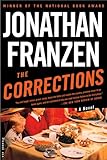 It’s likely to be the case that things I was enthusiastic about…on longer reflection the flaws reveal themselves. But that’s not a terrible thing. For example, I had to revisit Jonathan Franzen when I was writing the piece that’s in this book [“Zoned Out” in Barbarians] about his essays, which I found very revelatory. He is someone who strikes me as a novelist, and these essays are a smaller part of his output. I don’t think it’s where he really lives, and I think that’s a problem. He should be making novels out of them, not essays. I was working on that piece in 2006, but I had reviewed The Corrections when I was book critic at New York magazine which I had very much liked. When I went back to it I started to see things in The Corrections which I hadn’t picked up on the first time around that suggested a worrisome pattern.
It’s likely to be the case that things I was enthusiastic about…on longer reflection the flaws reveal themselves. But that’s not a terrible thing. For example, I had to revisit Jonathan Franzen when I was writing the piece that’s in this book [“Zoned Out” in Barbarians] about his essays, which I found very revelatory. He is someone who strikes me as a novelist, and these essays are a smaller part of his output. I don’t think it’s where he really lives, and I think that’s a problem. He should be making novels out of them, not essays. I was working on that piece in 2006, but I had reviewed The Corrections when I was book critic at New York magazine which I had very much liked. When I went back to it I started to see things in The Corrections which I hadn’t picked up on the first time around that suggested a worrisome pattern.
TM: What’s the most controversial thing you’ve written?
DM: Certainly the Mad Men thing was just out of control. It took me a little by surprise. But that demonstrated the intensity of the phenomenon I was describing in the piece: that people are attached to this show in a way that transcends formal aesthetic dramatic considerations. It’s deeply emotional. I couldn’t believe how much stuff was coming back to me about it. I found myself having arguments with nineteen-year-old skateboarders in Seattle. But that’s great. If people want to argue, as long as it’s civil and intelligent I’ll talk to anybody about anything. That’s also part of your job as a critic.
Here again I would say my Classics background influences me because when you are a Classicist you are learning how to read a culture through more specific readings of buildings, tragedies, comedies, whatever. In that sense I think it can be your job not just to look at the text itself but to look at the cultural surround, which is why in a piece like that one is allowed to mention the action figures, the Sesame Street episode. This is part of it.
In a similar way I wrote about The Lovely Bones [“Novel of the Year” in Broken]. There’s the thing itself, then there is this incredible cultural event around it. I think it’s legitimate to include that. One of the good things about writing for the New York Review of Books is Bob doesn’t care that much about timeliness. So you can take something like The Lovely Bones—that piece was four months after publication if not more—and that allows you to do a different kind of review than if you were doing it for New York magazine and had to get the word out. I think those reviews might actually have more legs—Greater legs? Longer legs?—because they’re anchored in the longer cultural picture rather than in the moment. I won’t know until I’m dead, but it will be interesting to see if those pieces have a little more edge.
TM: Well, I think you’ll probably know in two years, five years, ten years, to some extent.
DM: Again, as a Classicist, you are used to taking the long view. I was once doing an event and somebody asked, “When you write reviews do you think of the feelings of the writer?” I said that I was trained to think of the writer as having been dead for two thousand years. It’s actually very good because then you focus on the work. You don’t want to be cruel or snarky but to take the work seriously. So that long view is an echo or inheritance from the way I was trained to read things.
TM: I was trained in an English department where I studied eighteenth- and nineteenth- century American literature so I have the same attitude. A certain detachment is welcome when it comes to criticism. And I write a blog called Dead Critics.
One of the themes I saw in reading both collections was a kind of reaction against sentimentality. You brought up the Lovely Bones piece where I think it’s very much present and in the Mad Men piece also, a certain maudlin—
DM: A kind of mushiness…
TM: Right, mushiness, that if it’s not predominant in the culture then that the culture seems to celebrate.
DM: Yes. I think that’s an excellent summary and I think that we are in a culture of a kind of reflexive celebration of everything and therefore you have to dig in your heels a little and resist. Especially if it’s an overwhelming tsunami of public feeling. Then it’s doubly your duty to use your mind, use your tools, and to dissect the object at hand and to look at it not coldly but coolly. You can find that you like it, I’m not saying that this is necessarily a negative or a destructive enterprise. I do think we’re in a sentimental culture and I think it’s making us a worse culture. I really do. Look, I’m a guy who wrote a book about Greek tragedy which is a very appealing form for me because there is no wiggle room in tragedy. You do things, you suffer the consequences. There’s something about the rigor of that that appeals to me.
TM: I’m curious as to what you think some of the other themes are in this collection.
DM: I think that what I call the reality problem is a big one. This idea of reality as subjective—obviously in the memoirs thing [“But Enough About Me” in Barbarians] it comes up and that was of great interest to me as I’ve written two memoirs. Certainly I would say that writing about the self is a big theme in this collection. If I were reviewing my collection a consistent theme—talk about The Producers, this is certainly the theme of that piece but it’s also the theme of the Julie Taymor piece [“Why She Fell” in Barbarians]—is how because of the seductions of pop culture interesting artists end up betraying themselves. Sometimes a disappointment is in an artist that I liked and somehow the work ends up betraying itself. Sometimes the sentimentality, the mushiness can end up making a work mean the opposite of what it’s supposed to mean.
TM: It’s in the Alan Hollinghurst piece too [“In Gay and Crumbling England” in Barbarians].
DM: Yes. I think that’s happening to Alan Hollinghurst. It’s not a sinister thing, it just happens.
TM: I’m thinking about some of your positive reviews, like the one of The Master [“The Passion of Henry James” in Broken]. On the whole it is very positive but at the end you have that feeling about Colm Tóibín, that he’s on the verge of doing that. One of the themes that I found running through both collections is about a kind of moral failure, or people who face moral dilemmas and either make the wrong choice or have a failure of nerve. They can’t quite follow through on the promise of the work.
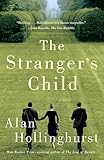 DM: Very few people can carry through an entire career the wonderful, momentous, originary strangeness of the vision that got them noticed in the first place. Hollinghurst is a great example. The Swimming Pool Library and The Folding Star are probably two of the most interesting novels of the past twenty years. But you’ve remained you, and the world keeps going. Very few people—and usually they are just very great artists, and I don’t use the word great lightly—are the ones who can just keep going. Picasso, Shakespeare, Balanchine, people who are just beyond time. What happens to most people is they start out, they’re subversive, they’re quirky, they’re interesting, they have a new way of dealing with a subject. It puts them on the map. But then, you know, you win a lot of awards, you have a house in the country…And whatever your edge was, it goes away. Sometimes it doesn’t matter, you keep working. I did not enjoy The Stranger’s Child. Clearly, something had shifted. Art goes on forever but artists are mortal and careers have arcs and you get into a groove. It’s like what we were talking about before. Very few people transcend their position within which the moment that they live. We exist in time, as writers and critics and artists. It’s going to happen unless you are very exceptional. I think that’s an interesting observation about that as a theme. Probably because I’m afraid it’s going to happen to me. I’m sure someone is writing a piece about my book right now saying Mendelsohn has betrayed himself.
DM: Very few people can carry through an entire career the wonderful, momentous, originary strangeness of the vision that got them noticed in the first place. Hollinghurst is a great example. The Swimming Pool Library and The Folding Star are probably two of the most interesting novels of the past twenty years. But you’ve remained you, and the world keeps going. Very few people—and usually they are just very great artists, and I don’t use the word great lightly—are the ones who can just keep going. Picasso, Shakespeare, Balanchine, people who are just beyond time. What happens to most people is they start out, they’re subversive, they’re quirky, they’re interesting, they have a new way of dealing with a subject. It puts them on the map. But then, you know, you win a lot of awards, you have a house in the country…And whatever your edge was, it goes away. Sometimes it doesn’t matter, you keep working. I did not enjoy The Stranger’s Child. Clearly, something had shifted. Art goes on forever but artists are mortal and careers have arcs and you get into a groove. It’s like what we were talking about before. Very few people transcend their position within which the moment that they live. We exist in time, as writers and critics and artists. It’s going to happen unless you are very exceptional. I think that’s an interesting observation about that as a theme. Probably because I’m afraid it’s going to happen to me. I’m sure someone is writing a piece about my book right now saying Mendelsohn has betrayed himself.
TM: One last question. Is there anything or anyone you are dying to write about but haven’t yet?
DM: The great regret that I have is that I would have loved to have written a really major piece about Battlestar Galactica, which I think is one of the greatest things to have ever been on TV. It’s extraordinary. I would love to take that thing apart. I thought it was so exciting and I was just evangelical about it. I think the most interesting thing that is going on in culture right now is television. There’s a whole Classical angle, an Aeneid thing going on, but also the Iraq war. People have discussed different aspects of it but I would come at it whole.
TM: I’ve never seen anything written about it that I thought was great.
DM: I also thought it was deeply philosophical in the real sense of the word. It made you think. It was an existential problem that was established by this genius idea of having these robots be indistinguishable from humans even by themselves. And they milked it. They dramatized it. That was my complaint about Mad Men. I don’t think the issues were dramatized. They were announced or advertised. But this existential, philosophical issue in Battlestar was dramatized. When the first officer [Colonel Tigh] realized that he was a Cylon and there was the scene between him and the captain. That was wrenching! That was drama. Then there is the religious thing, about monotheism and polytheism.
TM: There’s so many things. There is a psychoanalytic thing that is very strong, about are we our fantasies? Are we who we think we are? There’s a nationalist thing—
DM: The whole political angle, the civilian government versus the military government. It’s really gripping. And the acting was so incredibly great. From the minute I started watching it I thought I was going to die, I was so happy. So that’s my big regret. I really think this needs to be done. And I would like to do it.

